Candy box in porcelain decorated with a dancer
Height: 14 cm
Width base: 14,5 cm
Depth base: 13,5 cm
Good condition (light traces of wear on enamel)
Signed Robj Paris and numbered (40)
Bibliography:
Robj Paris by Vanna Brega
Edition: L. Periodici
Reproduced in full page (un-numbered) in a different color
and page 199
http://www.robj.ch. This web page was created by Swiss designer Lucien Cueni to display what may be considered the largest collection in the world of Robj trinkets or “bibelots”.
History:
ROBJ - France
The production of Robj porcelain figurines and other objects reached the height of their popularity in the late 1920s and early 1930s. Jean Born (Robj) and his partner Lucien Willmetz, managed a successful retail store at 3, Cite d’Hauteville in Paris. They actively encouraged Art Deco and Cubist ceramic designers and artists, and provided a showcase for their production works. Robj sponsored an annual competition of “art deco trinkets” between 1927 and 1931 as a means of discovering new designers. Robj was not a manufacturer – his porcelain pieces were commissioned and produced by various suppliers among them Manufacture de Sèvres, Villeroy et Boch in Luxemburg, several factories in Limoges and a decoration workshop with a muffle furnace in Boulogne-sur-Seine.
Their most successful objects sold in the retail store were porcelain figures, lamps, perfume lamps, ashtrays, bottles, bookends, and kitchen items. The production of unique liqueur-decanters in 1928 set new levels of popularity and sales. Following closely in 1929, and with equal popularity came the production of tobacco-pots. Elegance, stylishness, originality, and skillful craftsmanship were vibrantly represented in each object. The spirit of liveliness and inventiveness, and the combination of themes and subject-matters must also be recognized for the amazing success of Robj.


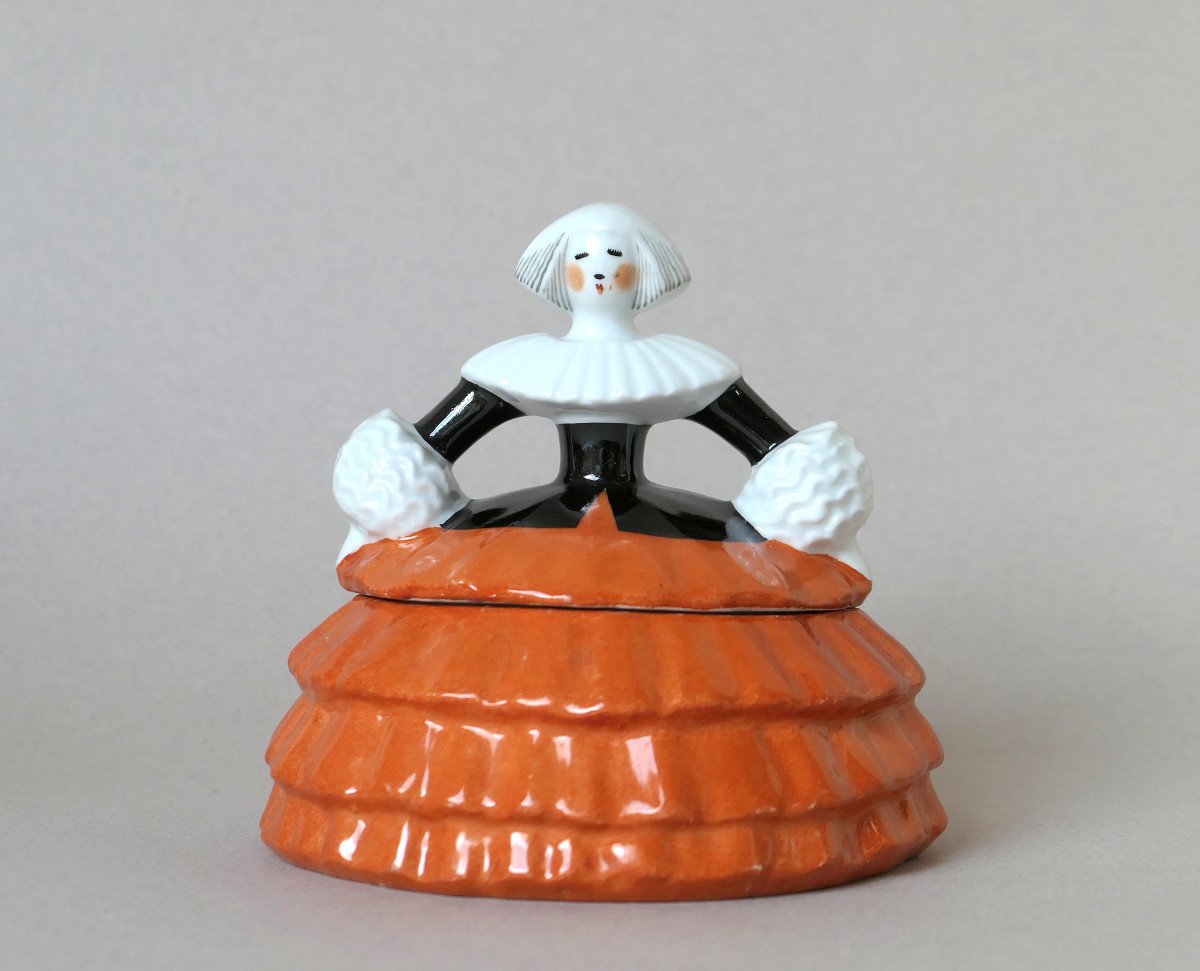
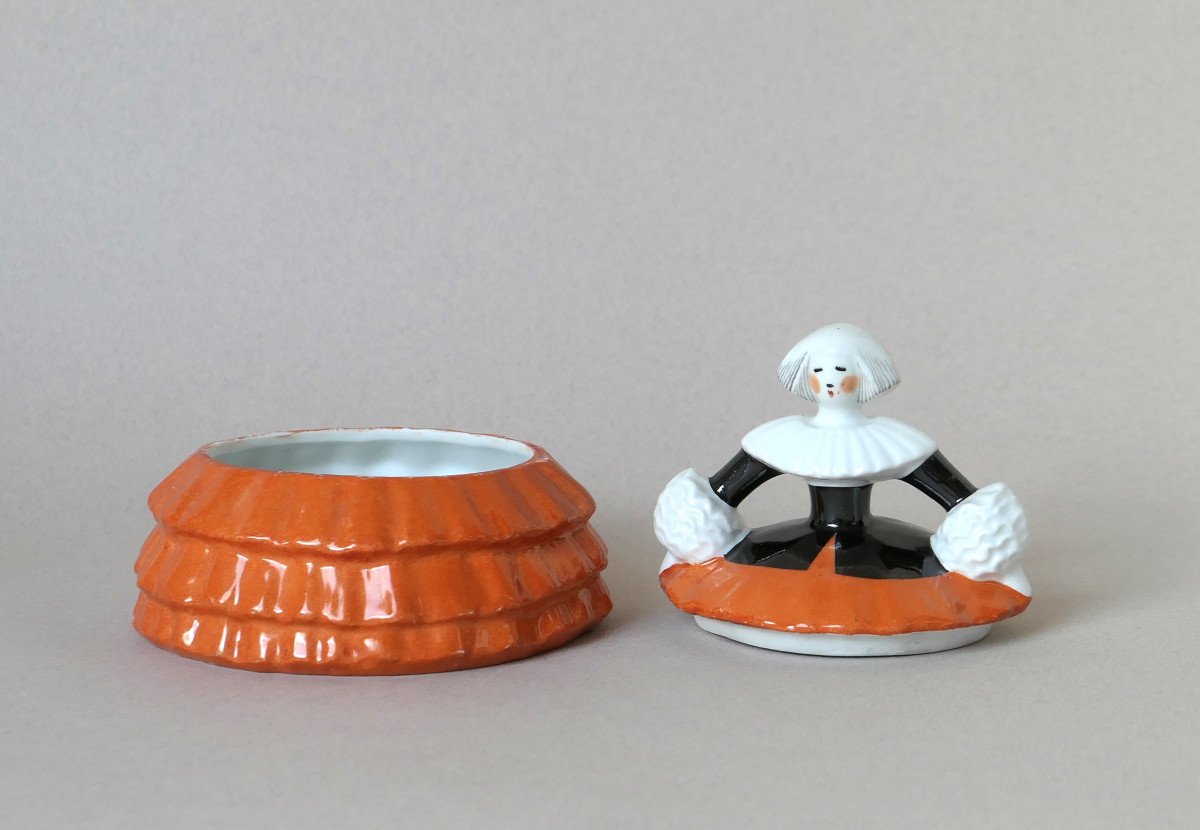
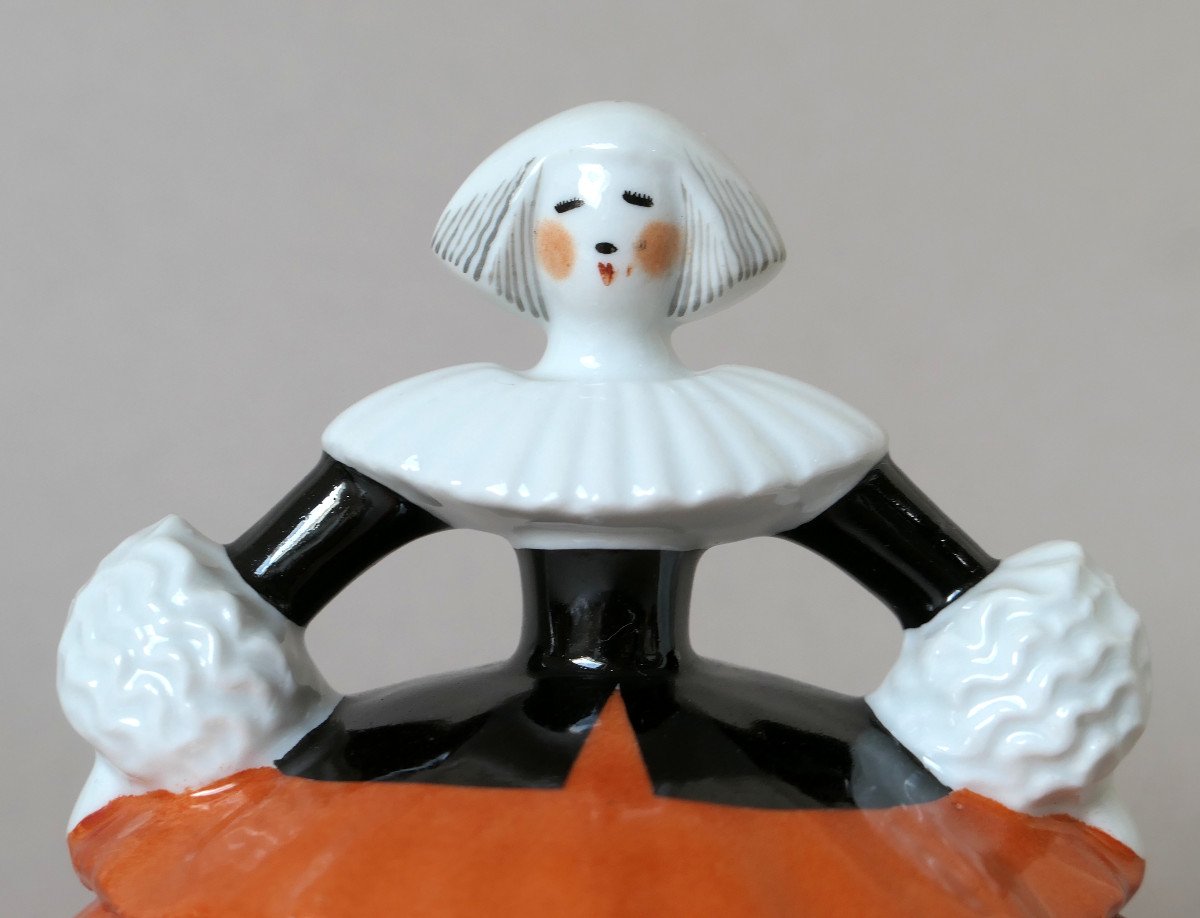
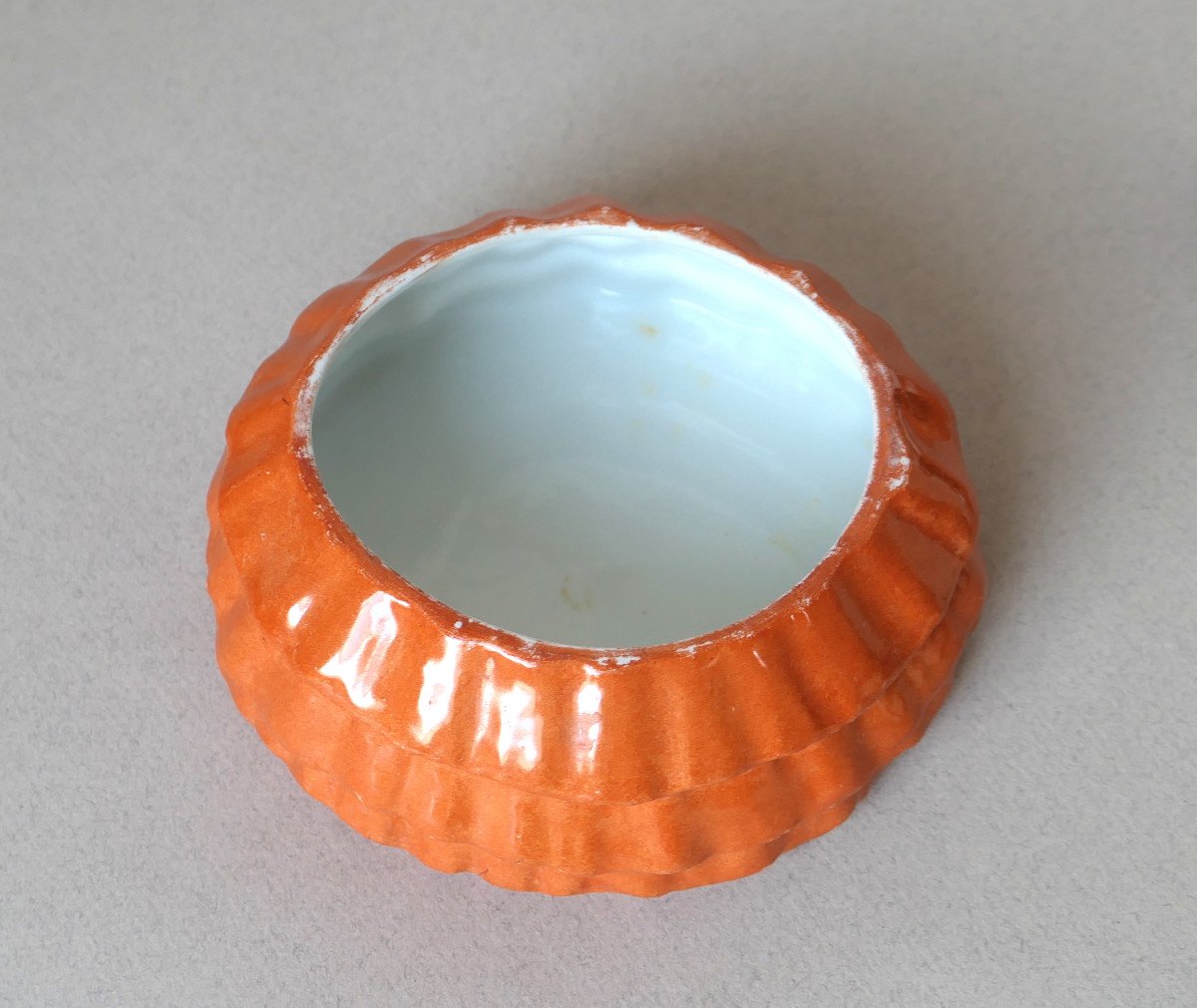
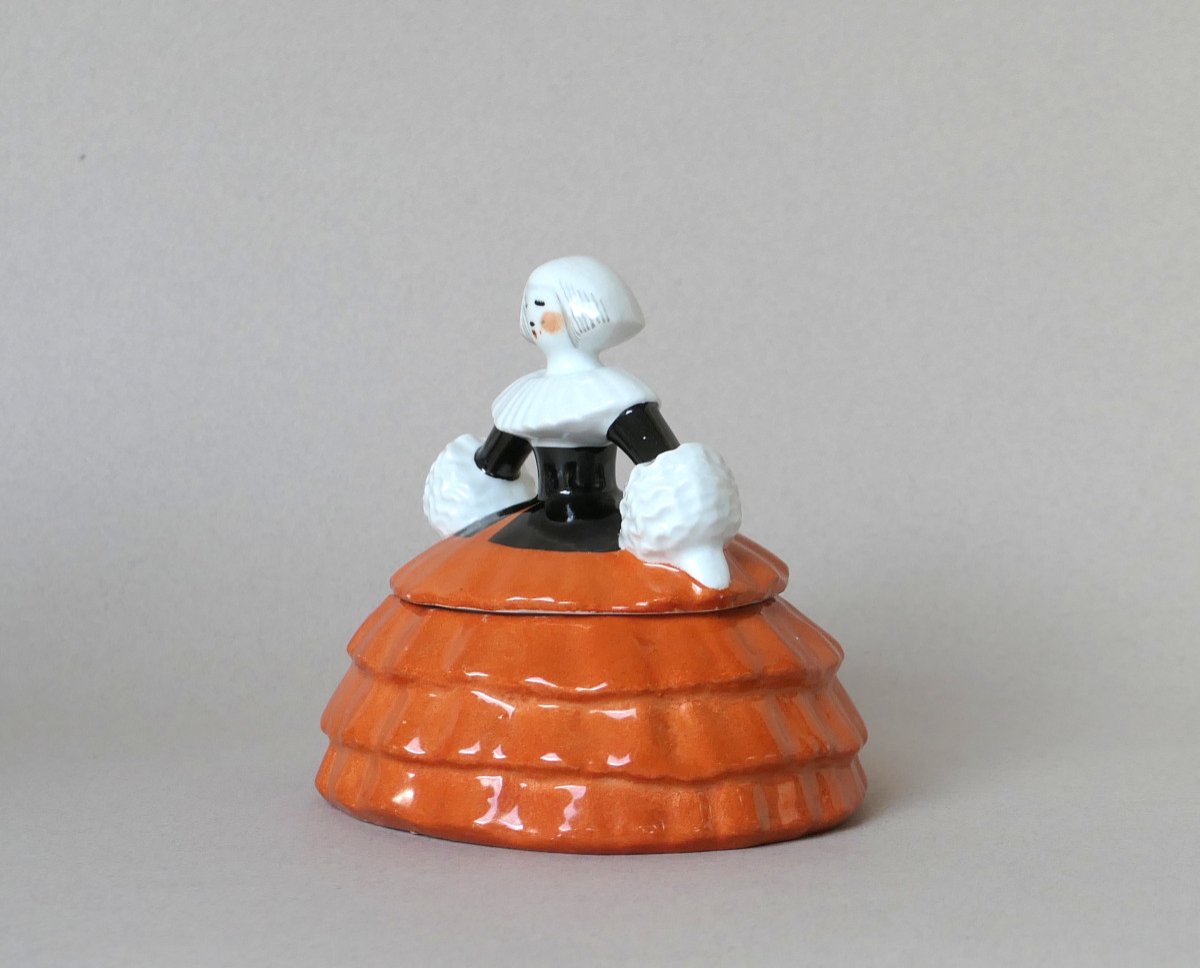
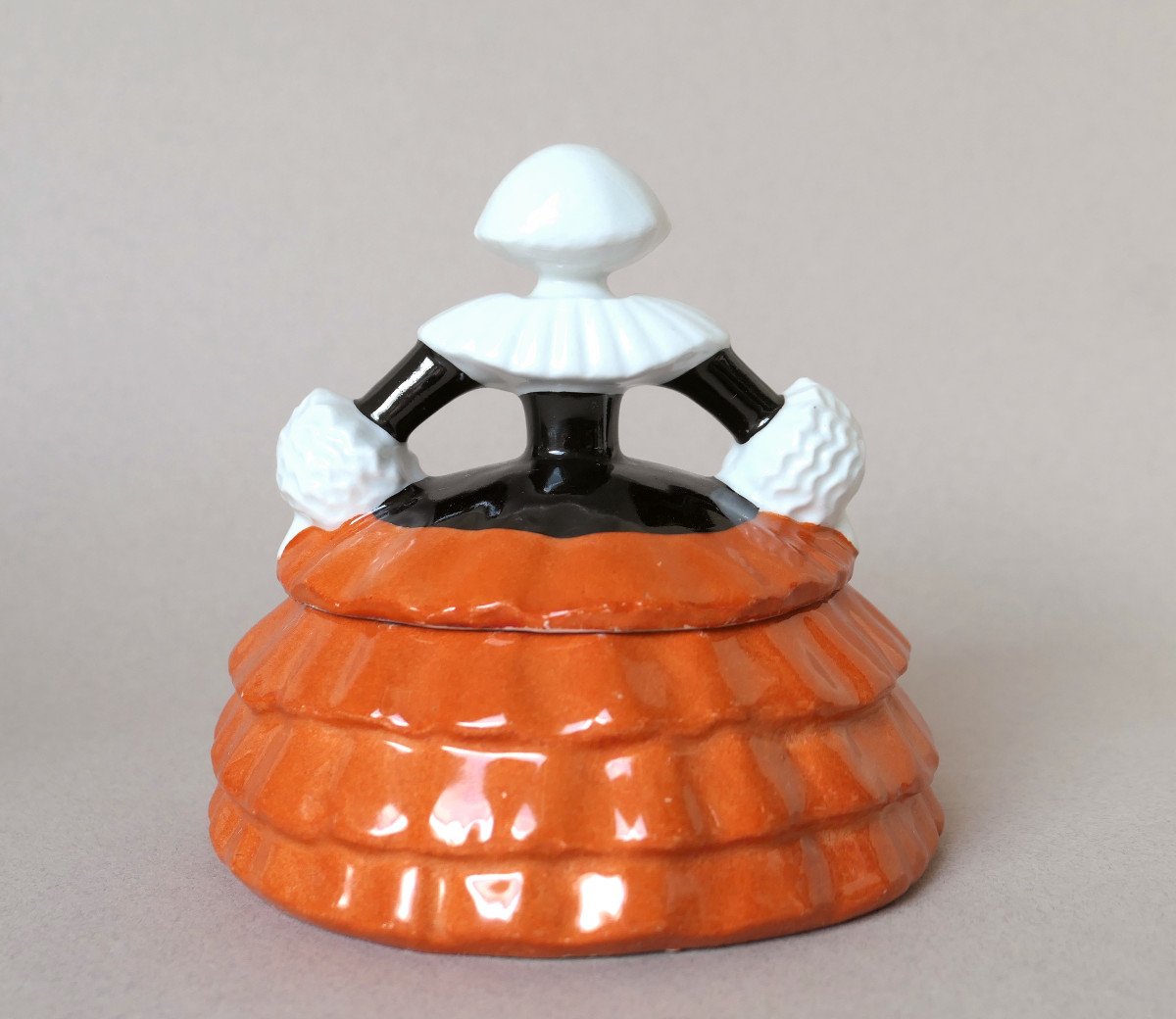
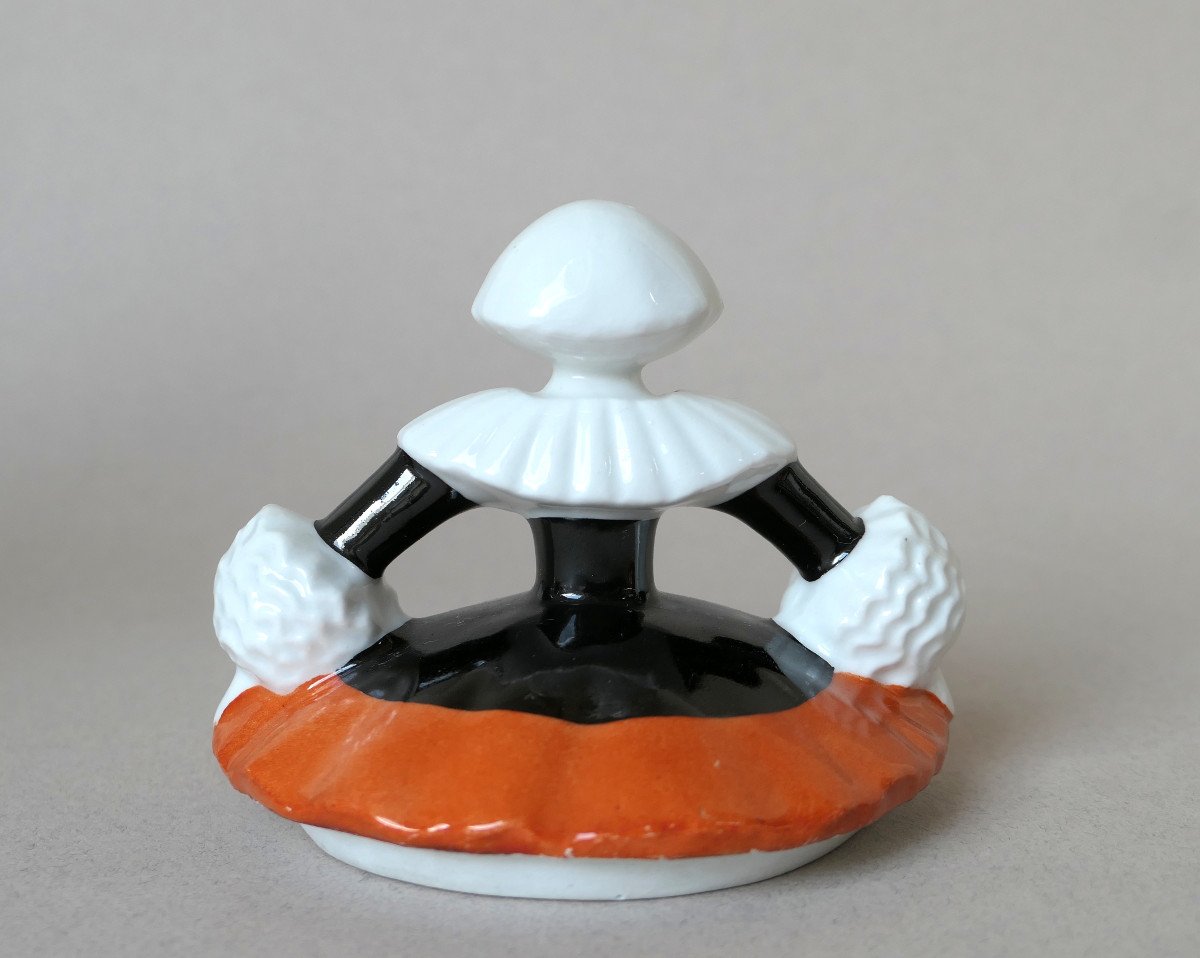
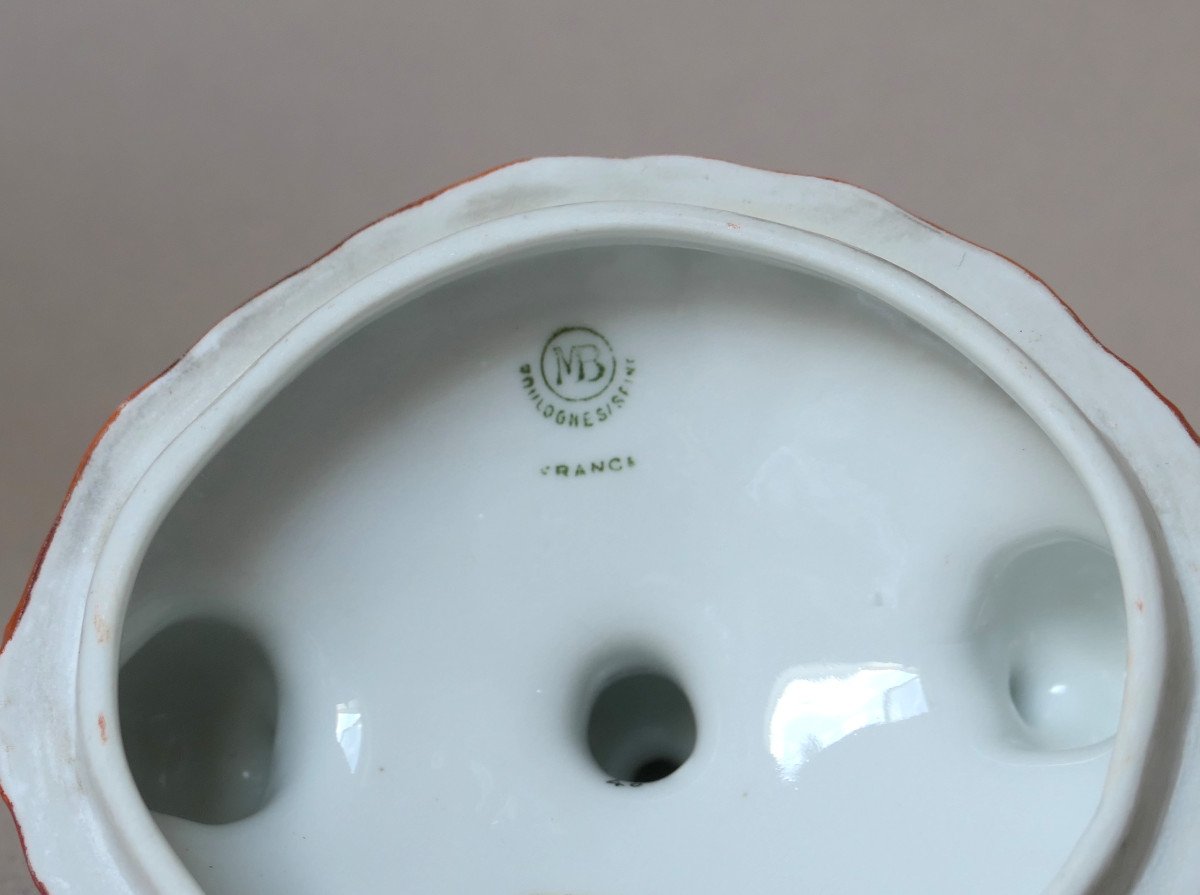
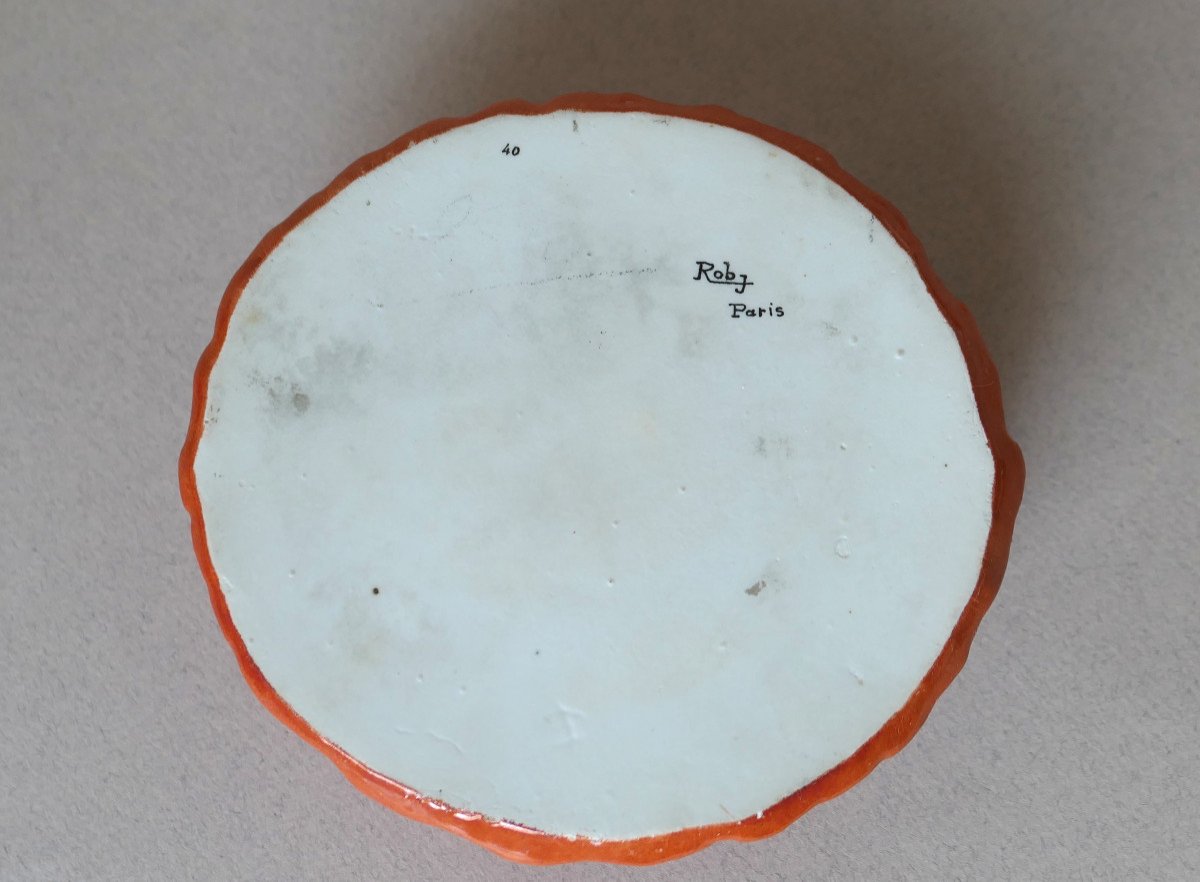














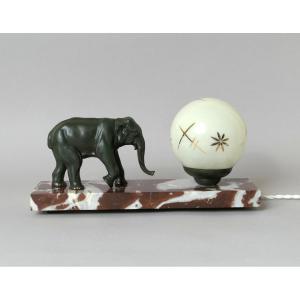


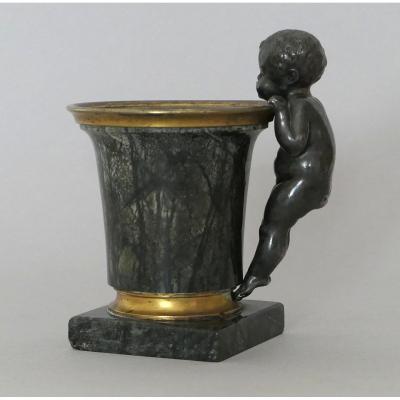

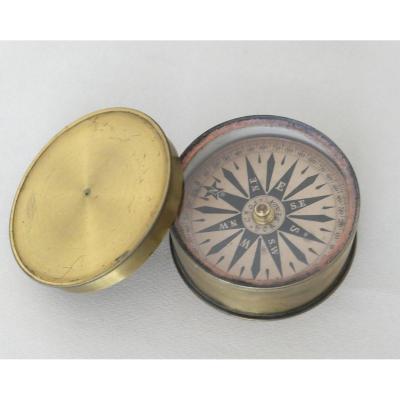
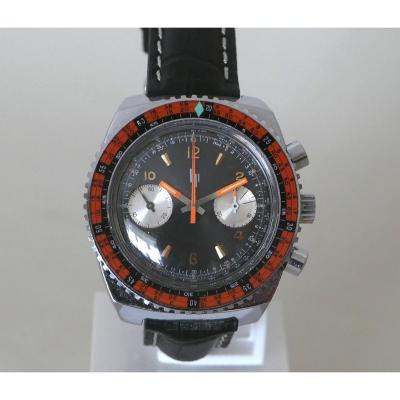
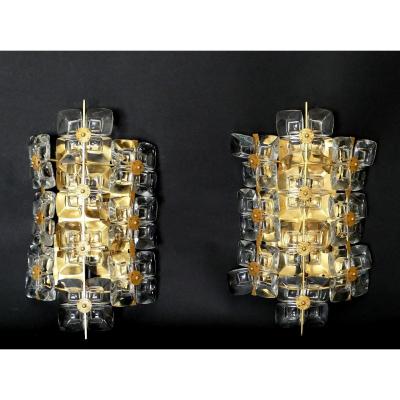

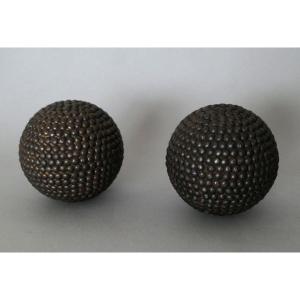
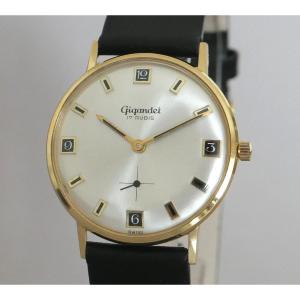

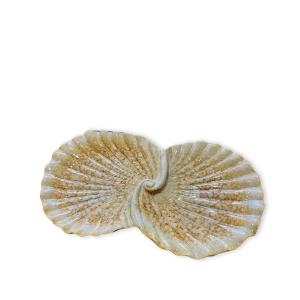
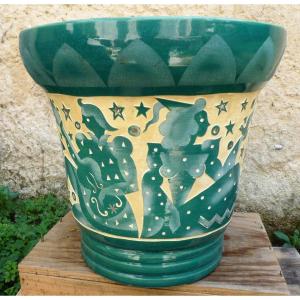
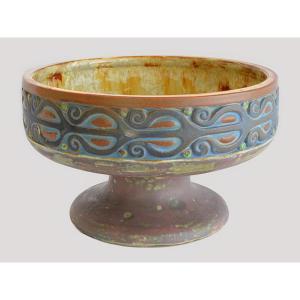




 Le Magazine de PROANTIC
Le Magazine de PROANTIC TRÉSORS Magazine
TRÉSORS Magazine Rivista Artiquariato
Rivista Artiquariato